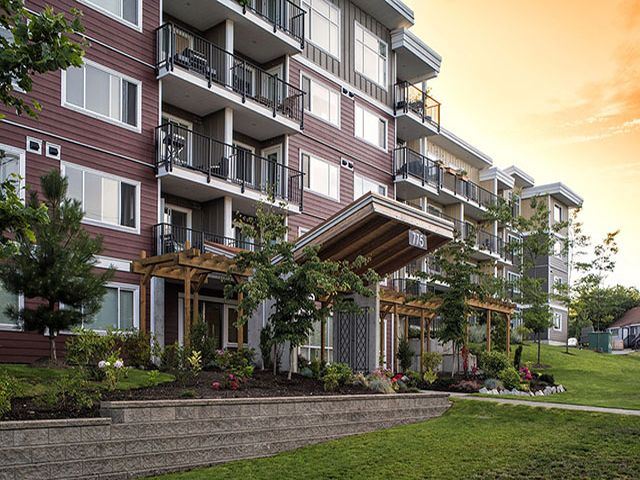Investing in Canadian real estate can be a strategic move, but timing is everything. The market is dynamic, influenced by economic shifts, interest rates, government policies, and regional demand. This guide explores the best time to invest in Canadian real estate, supported by data, trends, and investor insights. We’ll examine seasonal trends, regional opportunities, economic indicators, and more.
Thank you for reading this post, don't forget to subscribe!Understanding the Canadian Real Estate Market
The Canadian real estate market has seen significant changes over the past decade. Driven by immigration, urbanization, and low interest rates, property values in cities like Toronto, Vancouver, and Montreal have soared. However, affordability issues and regulatory changes have shifted market behavior, making timing even more critical for investors.
Why Timing Matters in Real Estate Investment
Real estate is a long-term investment, but entering the market at the right time can amplify returns. Market cycles include periods of rapid growth, stabilization, correction, and recovery. Recognizing these cycles and aligning them with your financial goals is key.
Real Estate Investment Cycles
- Growth Phase: Prices rise rapidly, demand is high, and inventory is low.
- Stabilization: Price growth slows; investors become cautious.
- Correction: Prices drop or plateau; good deals become available.
- Recovery: Market starts rebounding; early investors benefit most.
Best Times of Year to Buy Real Estate in Canada
Winter: The Investor’s Advantage
Winter months (December to February) are typically slower. Sellers are more motivated, competition is lower, and buyers can negotiate better prices. This is often the best time to invest in Canadian real estate for budget-conscious investors.
Spring: High Activity and High Prices
Spring (March to May) sees more listings and buyers. Properties show better, and families look to move before school starts. However, competition is fierce, and prices are higher.
Summer: Transitional and Regional Opportunities
Summer brings regional opportunities, especially in vacation and rural markets. Urban markets may slow slightly, allowing some negotiation room.
Fall: Balanced Activity
Fall offers a mix of inventory and moderate competition. Investors can still find deals, especially if they move quickly before winter.
Key Economic Indicators to Watch
Investors in Canadian real estate should monitor:
- Interest Rates: Lower rates reduce borrowing costs and increase buying power.
- Employment Trends: Strong job markets support real estate stability.
- Population Growth: Immigration and domestic migration fuel housing demand.
- Government Incentives: First-time buyer programs or tax rebates.
Regional Opportunities Across Canada
Toronto: Canada’s Financial Powerhouse
Toronto offers strong appreciation and rental income potential, especially in condos. Look for neighborhoods undergoing redevelopment or near new transit lines.
Vancouver: High Demand, Limited Land
Vancouver is expensive but offers long-term gains. Timing your entry during market slowdowns can secure premium properties at reduced prices.
Montreal: Emerging Investor Hotspot
Montreal offers more affordable entry points. The city’s mix of culture, education hubs, and tech growth makes it ideal for long-term investment.
Explore: Luxurious Montreal Apartments for Rent
Chilliwack: Suburban Value and Growth
Chilliwack provides excellent value and strong rental yields. Rapid growth in the Fraser Valley positions it well for appreciation.
See: Bright Chilliwack Rental Basement Suite
Coquitlam: Urban Living with Green Space
Coquitlam blends urban development with natural beauty. It’s attractive to families and professionals alike.
View: Modern Apartments Coquitlam Braemar
Pointe-Claire: Upscale Lakeside Living
Pointe-Claire is known for luxury and lifestyle, offering long-term equity in a prime location.
Explore: Pointe-Claire Apartments – Luxury Comfort
Vancouver: Global Appeal
High demand, limited supply, and international interest make Vancouver a premium but competitive investment zone.
Check out: Vancouver Apartments – Premium City Living
Government Policies and Their Impact
Canadian real estate is heavily influenced by government regulation:
- Foreign Buyer Taxes: Provinces like BC and Ontario impose additional taxes on non-residents.
- Vacancy Taxes: Encourage rental use of investment properties.
- First-Time Buyer Incentives: Help new entrants afford homes.
Understanding these rules helps investors plan purchases and manage costs effectively.
Rent vs. Buy Considerations
Before investing, compare rental yields to mortgage and ownership costs. In cities like Montreal and Chilliwack, rental yields are higher, making investment properties more lucrative.
Long-Term vs. Short-Term Investment Strategies
Long-Term Buy and Hold
Ideal for wealth building. Investors benefit from rental income and property appreciation over years.
Short-Term Flips
Riskier but can yield faster returns. Success depends on accurate market timing and renovation efficiency.
Impact of Immigration on Housing Demand
Canada’s immigration targets contribute to steady housing demand, especially in cities like Toronto, Vancouver, and Montreal. Knowing immigration hubs can guide smart investment decisions.
Climate and Lifestyle Factors
Investors should also consider quality of life factors such as climate, walkability, public transportation, and access to amenities. Properties in well-connected, lifestyle-rich areas tend to retain and grow in value.
Technology and Real Estate Trends
Smart homes, virtual tours, and online listings have transformed the investment process. Investors can now analyze markets and close deals remotely, expanding opportunities.
Frequently Asked Questions (FAQs)
Q: When is the best month to invest in Canadian real estate?
Winter months, especially January and February, typically offer the best deals due to lower competition.
Q: Is Canadian real estate a safe investment?
Yes, Canadian real estate is considered a stable and appreciating asset, particularly in major cities and growing suburbs.
Q: Should I invest in condos or detached homes?
Condos are often easier to manage and more affordable. Detached homes offer greater appreciation but come with higher costs.
Q: Can foreign investors buy Canadian property?
Yes, but restrictions and taxes may apply depending on the province.
Q: What are typical rental yields in Canada?
Rental yields vary by city. In Montreal and Chilliwack, they tend to be higher, while Vancouver offers lower yields but higher appreciation.
Q: Is now a good time to buy in Vancouver?
If you plan to hold long-term, Vancouver remains a strong choice. Entering during a slow period offers better value.
Q: Are there government grants for property investors?
Most grants target first-time buyers, but rental support programs and tax incentives may benefit investors.
Q: How does inflation affect real estate investment?
Real estate often acts as a hedge against inflation, as property values and rental income tend to rise with inflation.
Conclusion
The best time to invest in Canadian real estate depends on your goals, resources, and understanding of market cycles. Winter typically provides the best buying opportunities, while regional hotspots like Montreal, Chilliwack, Coquitlam, and Vancouver offer diverse paths to growth. By monitoring economic indicators and aligning your strategy with local trends, you can make smarter, more profitable investments.







